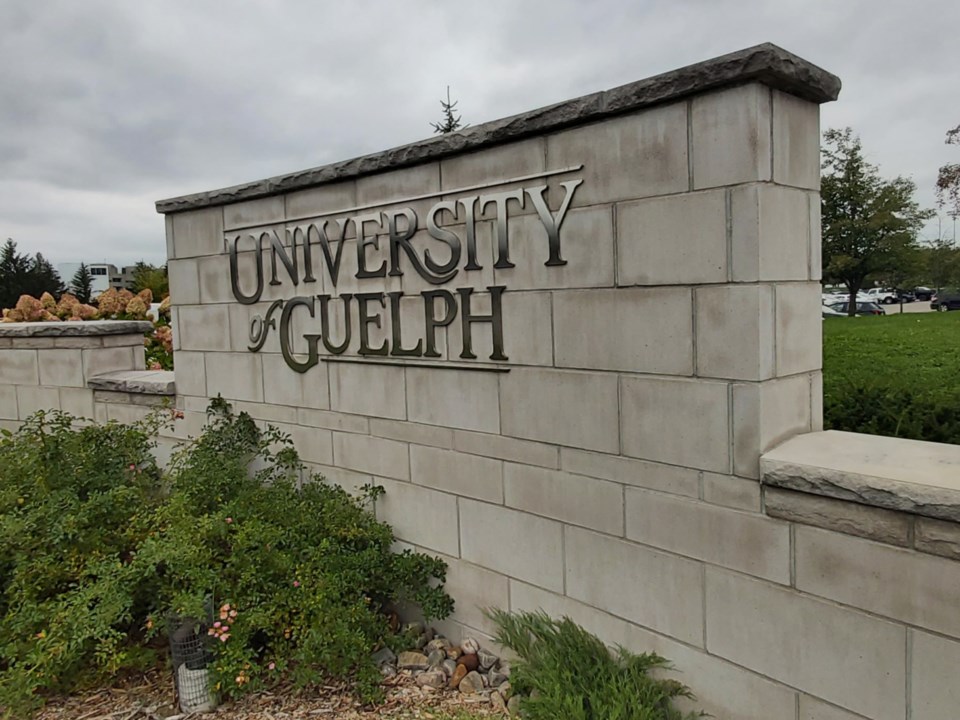Retirement might come early for some at the University of Guelph, as administration has launched a voluntary early retirement incentive program for eligible faculty, veterinarians and librarians.
While this will be good news for some, others are concerned not all those who depart will be replaced.
The program is part of their strategic transformation initiative to build sustainable financial capacity, said Deirdre Healey, senior director of media relations.
“The objective of the incentive program is to incent the retirement of some of our longest serving and highest paid faculty, veterinarians, and librarians. This will support faculty renewal and reduce compensation expenses while ensuring we continue to fulfill our core teaching and research missions,” she said.
In an email to faculty, provost and vice-president academic Gwen Chapman said the decision comes during a time of “financial challenge for the university.”
For the last three years, the university has been operating budget deficits due to things like the tuition reduction and freeze, as well as declining provincial operating grants, the pandemic and inflation, said president Charlotte Yates in an earlier email.
“We must now take the opportunity to set U of G on a path of financial sustainability,” Chapman said. “The voluntary program will provide an opportunity to find savings and is an opportunity to assess needs of our academic programs and enable the provision of strategic support across campus.”
By addressing the deficit, they will be able to implement new and innovative approaches all while modernizing how the university operates, said Yates.
In addition to the program, there will be operational reviews across various departments to inform plans to redirect resources, and a strategic transformation office will be established to lead the initiative.
“The purpose of these actions is not simply to save money; it is fundamentally about building on what works and changing what no longer serves us,” she said.
There are no set limits on how many people can take the offer, and those eligible can retire as early as January 31, 2024 or April 30, 2024.
While the university will hire positions for some vacated positions, Healey said “the program is an opportunity for us to strategically assess our academic programs, and to invest in resources to best address student and faculty needs, ensuring a sustainable future.”
She added this will “further enhance the student experience.”
But Herb Kunze, president of the University of Guelph Faculty Association (UGFA) said if faculty aren’t fully replaced, he said students will be impacted, adding that there is “no promise for full replacement or even 75 per cent replacement.
“Fewer faculty means fewer courses can be taught. Fewer veterinarians negatively impacts training in OVC. Fewer librarians means less student support in the library.”
He said there is also concern the newly paused programs will be closed “to eliminate courses and reduce the number of faculty members needed.”
For faculty, he said since no one is forced to apply for the program, those who were contemplating leaving might find the offer helpful. However, it might be frustrating if their application is denied.
But more importantly, he said there are concerns about what will happen to departments and programs “if a member or several members who form the backbone of the program will leave at more or less the same time.”
UGFA has heard from “a good number of worried members,” who are concerned about whether or not there will be full replacement hiring, and whether that hiring will be in the same departments that experienced departures.
“There is a worry that won't be the case and that the comprehensive nature of the university will be eroded further,” he said, adding that “the program pauses are also seen as attacking comprehensiveness: at a comprehensive university.
“There are large programs, medium programs, and small programs, and all of them bring value to the institution.”
